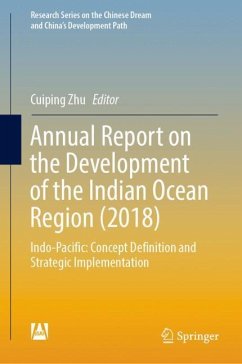
The Governance Structures of the Bretton Woods Financial Institutions
A Case of "Beggar-Thy-Neighbour"

PAYBACK Punkte
19 °P sammeln!
This book uses institutional data to examine and analyze the current governance structures of Multilateral Financial Institutions (MFIs) with the ultimate goal of reforming MFI governance models to be more responsive to the needs of developing countries. Founded in the post-World War II era, MFIs, collectively known as the Bretton Woods Financial Institutions (BWFIs), were created to promote global economic development and financial stability. This book argues, however, that the governance structures and policies of the MFIs have been biased in favour of developed country members, excluding le...
This book uses institutional data to examine and analyze the current governance structures of Multilateral Financial Institutions (MFIs) with the ultimate goal of reforming MFI governance models to be more responsive to the needs of developing countries. Founded in the post-World War II era, MFIs, collectively known as the Bretton Woods Financial Institutions (BWFIs), were created to promote global economic development and financial stability. This book argues, however, that the governance structures and policies of the MFIs have been biased in favour of developed country members, excluding less economically advanced countries from decision-making processes and perpetuating the economic status quo. Considering the inability of MFIs to adequately respond to the financial needs of developing countries, the book raises an alternative proposal for BWFI reform, based on the following criteria: (i) encouraging development incentives, (ii) favouring development learning through knowledge transfer and easing its appropriation by developing countries, and (iii) guiding and facilitating access to private international financial markets. Combining historical economic analysis with policy recommendations for the future, this book will be of particular interest to students and researchers of development economics, governance, and MFIs, as well as practitioners working with the institutions studied.












